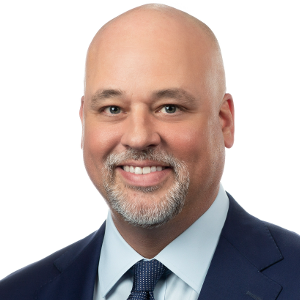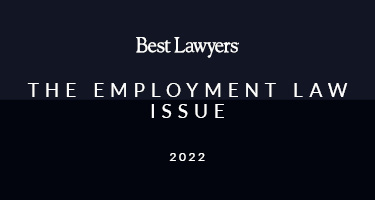If you claim workers’ compensation benefits in South Carolina, you will be required to see a doctor approved by your employer to treat your injury or illness. He or she will have a great deal of influence over your claim and benefits. For example, the physician of record on a claim determines when the workers’ comp recipient has recovered enough to return to work.
It is easy to damage your claim if you do not follow the directions of the doctors and attend all follow-up appointments. Many states require workers’ comp recipients to see assigned medical professionals.
Over our 50 plus years of practice in South Carolina, our workers’ compensation attorneys at Joye Law Firm have worked with clients who have made mistakes that have led to reduced benefits and other complications. Below we look at some missteps to avoid when treated by a workers’ comp doctor.
7 Mistakes Not to Make When Dealing with Your Workers' Comp Doctor
If your workers’ comp claim is disputed at any point, you may need to take part in a hearing to prove that you qualify for benefits. Anything you say or do when dealing with doctors should hold up to scrutiny if you, your doctor or anyone else has to testify about it later.
Avoid these mistakes:
1. Waiting to seek treatment.
As soon as you suffer an on-the-job injury or think you have an occupational illness, you should notify your employer and request medical care. This is the first step in filing a workers’ compensation claim. A delay in seeking treatment can raise questions about the seriousness of your injury or how it occurred.
Basic workers’ compensation pays medical bills and a portion of weekly wages for occupational injuries or illnesses that cause a worker to be out of work for seven consecutive days or more. After an accident or medical diagnosis, a worker has 90 days in most cases to request medical care from their employer through the workers’ comp system.
However, by waiting to request a doctor, you may raise a question about the seriousness of your injury or whether it was related to a workplace accident. Waiting to seek treatment for a workplace injury is a mistake.
2. Missing doctor appointments.
Once a workers’ comp physician of record is treating you, you need to follow doctors’ orders to the letter. This means attending all follow-up appointments and physical therapy sessions. Speak to the provider’s administrative personnel about scheduling appointments more conveniently for you if necessary, but do not skip appointments without proper notice.
Skipping medical appointments will be taken to mean that you are not seriously injured.
3. Not describing your accident accurately.
Your doctor will ask how you were hurt. You may be asked multiple times to describe your accident. Stick to the basic facts. If there are things you don’t know or don’t remember, leave them out or say you don’t recall. Don’t guess about facts, and do not exaggerate what happened.
If at some point there are discrepancies in your story, this could be a big problem. There could be witnesses or even security camera video of your accident. You don’t want to give the insurer a chance to raise questions about what happened.
4. Not explaining your medical history.
Doctors should ask whether you have had similar injuries. They need to know to treat you properly, but workers’ comp insurers often use a prior injury or illness to argue that an employee’s condition is not work-related. This causes some patients to hesitate or hedge about prior medical issues, but that’s a mistake.
If the insurer challenges your claim, they will seek your medical records. If there’s anything in your medical history that might affect your claim, then not disclosing it will damage your credibility. Telling the doctor about it upfront ensures that it is considered, accounted for, and out of the way from the start.
5. Not being honest about your pain and work constraints.
During treatment, describe to your doctors and therapists what you are going through. You need to make them aware of how your injury or illness limits your ability to perform your job duties.
Remember, this is someone who regularly sees workers’ comp patients. He or she knows what is required of a valid claim and is recording your complaints and/or recovery progress at each appointment. This is not the time to suffer in silence. You need to be forthright with the healthcare providers about how the work-related injury is affecting you.
6. Ending treatment too soon.
The objective of workers’ compensation is to assist the injured worker financially until they recover and are able to return to work. Most injured workers look forward to returning to work for the income and to get their old lives back. But returning to work too soon can lead to being reinjured. The insurance company that has ended benefits and closed your claim may fight resuming payments. The insurer may argue that you had recovered – you went back to work – and this is a new case that warrants full investigation before any benefits are paid.
Your treating physician must sign off on you having reached maximum medical recovery and being ready to return to work. Don’t push them, regardless of how bored you are with rehab or being at home. If you think your assigned doctor wants you to return to work too soon, you can seek a second opinion. If a second doctor disagrees, you can retain legal help and challenge your release to return to work.
7. Not meeting with a workers’ compensation attorney.
Workers’ compensation is a complex insurance program and there are many ways for deserving workers to be denied benefits they should rightfully receive. A South Carolina workers’ compensation attorney at Joye Law Firm can help you understand your rights and represent you in an appeal if your claim is disputed.
A workers’ comp attorney will meet with you for an initial legal consultation about your claim at no charge. An attorney who represents you can investigate your case to determine all the benefits that are applicable to your workplace injury. If you have been injured and cannot return to work, let an attorney who knows the system deal with workers’ comp while you concentrate on getting well.





























